

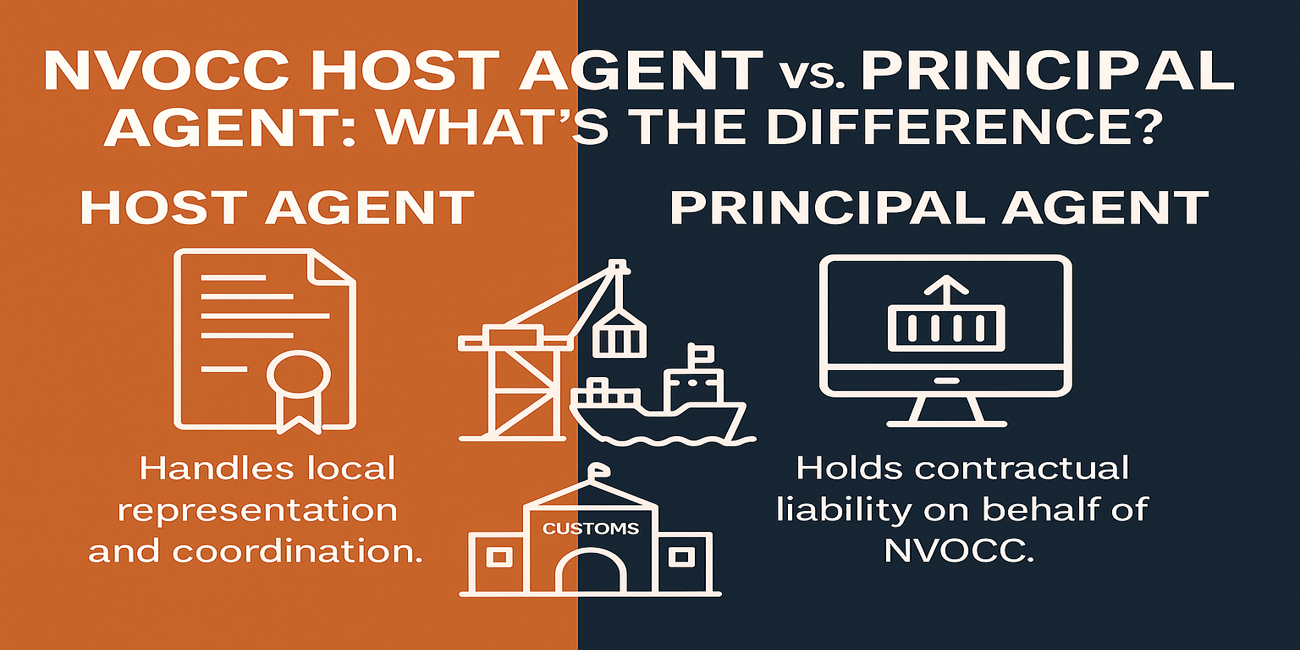
When things go wrong at a port, the first question is, “Who’s responsible?” If you don’t know whether it’s your host agent or your principal, you’ve already got a problem.
In the complex world of NVOCC operations, roles aren’t just titles—they’re tied to legal responsibility, performance standards, and client satisfaction.
Many logistics teams confuse host agents with principals, using the terms interchangeably. But while they work closely together, their functions, liabilities, and authority are very different.
Think of the host agent as your eyes, ears, and hands at the port—without them, you're flying blind in unfamiliar territory.
A host agent acts as the local operational arm of an NVOCC principal.
They operate in a specific country, city, or port, executing instructions on behalf of the principal to ensure that cargo moves smoothly and compliantly.
Documentation: Prepares and submits local shipping documents, customs entries, and delivery orders
Cargo Coordination: Manages pickup, loading, de-stuffing, and delivery within the port’s jurisdiction
Local Compliance: Ensures shipments adhere to regional regulations and port protocols
Customer Communication (Locally): Acts as the point of contact for port officials, transporters, and sometimes local clients
On-Ground Support: Troubleshoots real-time delays or issues during vessel arrival, clearance, or cargo delivery
They don’t act as the legal carrier or issue bills of lading, but they make sure the principal’s instructions are carried out correctly and on time.
If the host agent handles the ground game, the principal agent draws up the playbook—and carries the legal responsibility for every move.
The NVOCC principal is the entity that contracts with shippers, books freight with carriers, and issues the House Bill of Lading (HBL).
They are the legal carrier in the eyes of the customer and are accountable for the full movement of the shipment, even if they don’t operate vessels themselves.
They also appoint and manage host agents in different regions to carry out physical operations on their behalf.
The principal agent:
They may work on the same shipment, but their responsibilities, authority, and liabilities couldn’t be more different.
Understanding the difference isn’t just about job titles—it’s about who’s legally responsible, who controls the cargo, and who makes decisions when something goes wrong.
Blur the lines between a principal and a host agent, and you blur accountability. That’s how delays, penalties, and blame games begin.
In global freight, misunderstandings cost money and credibility. Clearly outlining who does what and who’s responsible for what prevents confusion between stakeholders, clients, and regulatory authorities.
When each party knows their role:
It’s the difference between running a coordinated operation and putting out fires daily.
If a customs document is delayed or a container is held due to incorrect filing, who’s liable?
Clear documentation, contracts, and SOPs between principal and host agents create a framework for accountability.
Not every shipment—and not every business—requires both roles. Knowing which agent you need can save you time, money, and operational headaches.
Depending on your NVOCC structure, shipment scope, and market reach, your needs may lean toward one role more than the other.
Ask yourself:
→ You are functioning as the principal.
→ You need a host agent there.
→ Appoint a trusted host agent in that region.
→ You’ll need both principals to manage contracts and hosts to manage execution.
| Scenario | Agent Type Needed |
|---|---|
| Booking cargo space with NVOCCs | Principal |
| Issuing HBL or managing freight contracts | Principal |
| Local documentation and port handling | Host Agent |
| Customs clearance and gate passes | Host Agent |
| Client relationship and pricing control | Principal |
| Market-specific regulatory guidance | Host Agent |
Every successful NVOCC operation has two engines: the principal driving strategy and the host agent executing it. Both must be aligned—or the shipment stalls.
Understanding the difference between a host agent and a principal isn’t just operational knowledge—it’s risk management.
When roles are clearly defined, responsibilities don’t fall through the cracks, and accountability stays intact.
Whether you’re expanding your NVOCC footprint or refining your current processes, make sure your agent relationships are structured, documented, and well understood on both ends.
Need help managing or expanding your NVOCC network?
Contact us today to strengthen your NVOCC strategy.

Your Global Trade Navigator, Delivering End-to-End Excellence and Unlocking New Opportunities in Every Link of Your Supply Chain.
Get In Touch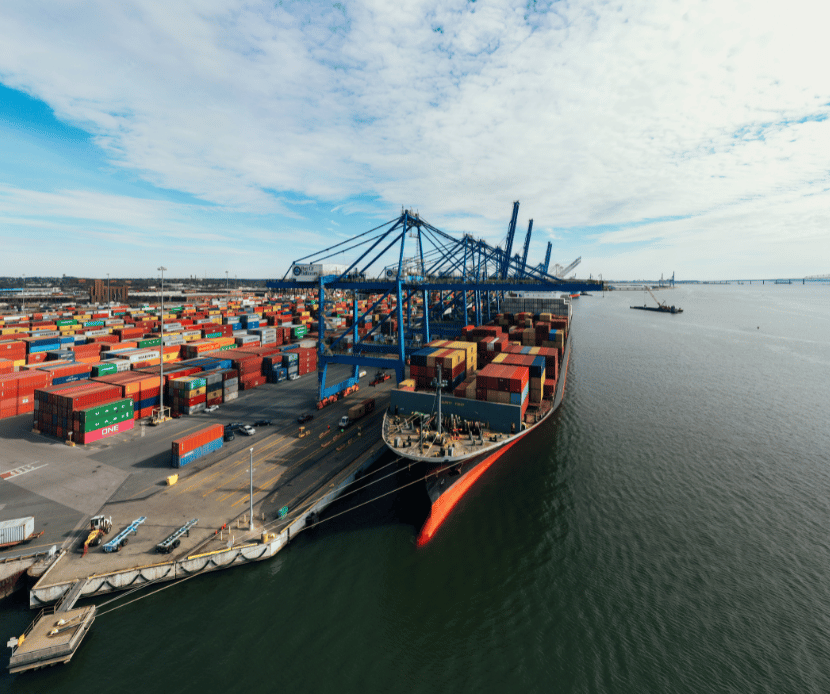
Explore our expert guide on Full Container Load (FCL) Shipping, covering benefits, processes, and tips to optimize your shipping experience efficiently.
Learn More FCL Shipping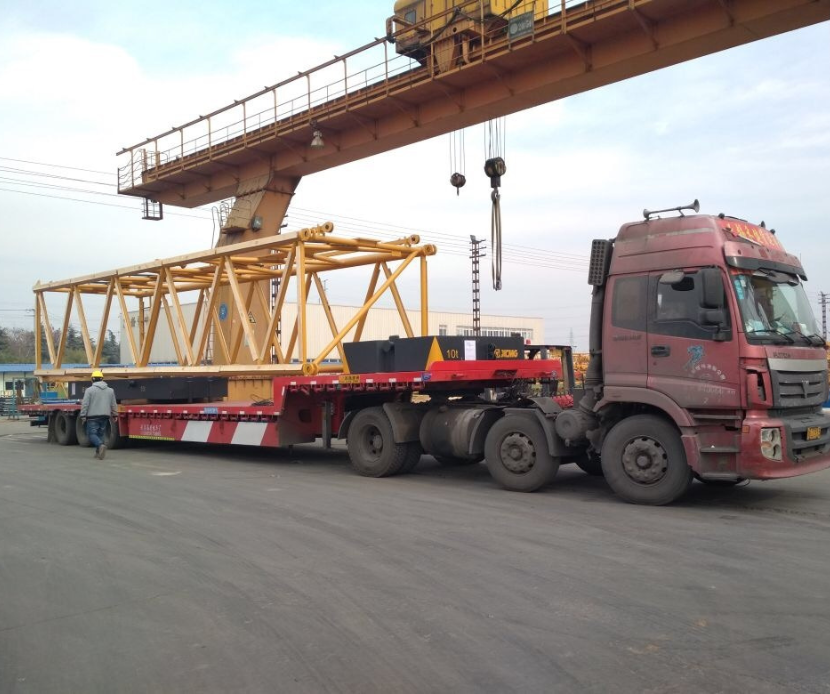
SJ Logistics specializes in the global transportation of high-value, oversized cargo, ensuring safe and efficient delivery for your most complex project logistics needs.
Learn More Project Cargo
Discover tailored warehousing solutions at SJ Logistics, designed for efficiency and strategic storage. Optimize your supply chain with our innovative services today!
Learn More Warehousing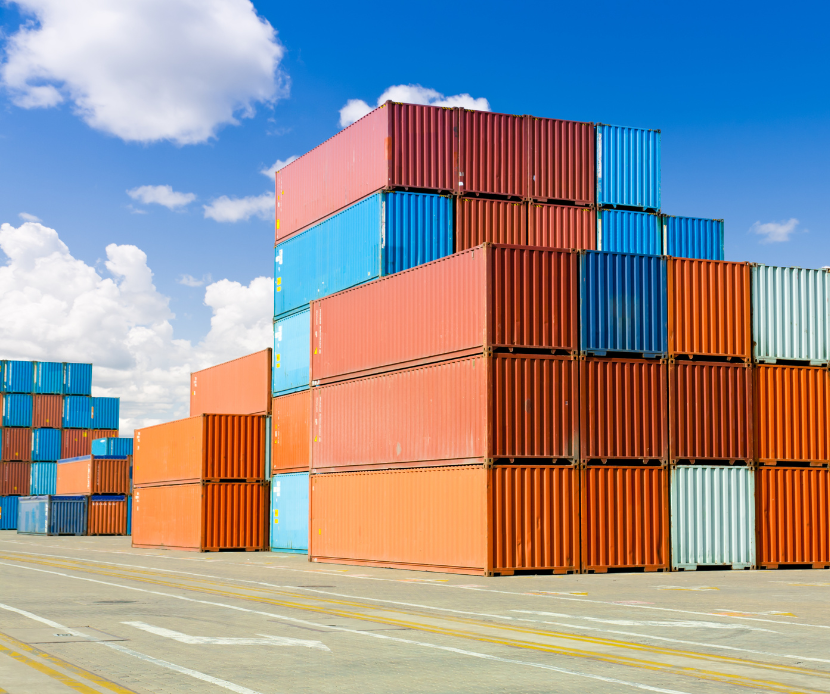
Discover comprehensive NVOCC solutions that streamline your logistics operations, enhance efficiency, and ensure seamless cargo management for your business needs.
Learn More NVOCC
Discover reliable inland transportation solutions that streamline your domestic logistics, ensuring timely and efficient delivery across the country.
Learn More Inland Transportation
Experience unparalleled convenience with our door delivery solutions, ensuring your packages arrive safely and promptly right at your doorstep. Discover more today!
Learn More Door Delivery
Experience seamless customs clearance with SJ Logistics. Our expert-led solutions ensure precision and efficiency, streamlining your import and export processes.
Learn More CHA
Experience unparalleled speed and reliability with our air freight services, ensuring your cargo reaches its destination swiftly and safely, no matter the distance.
Learn More Air Freight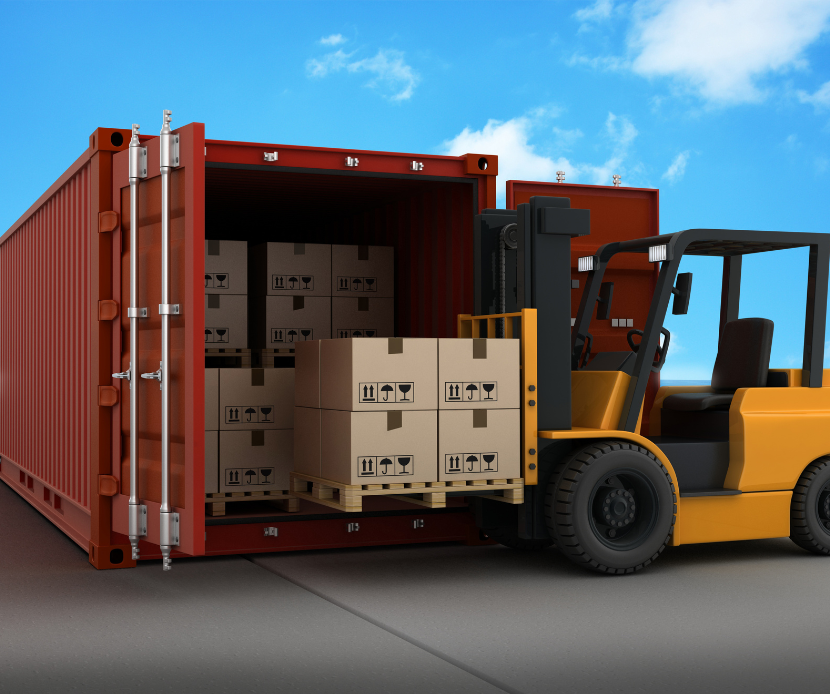
Unlock the benefits of LCL shipping with our tailored solutions. Enjoy flexibility, cost savings, and strategic support designed for SMEs to thrive in global trade.
Learn More LCL Shipping